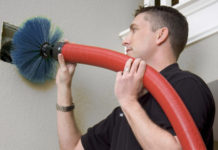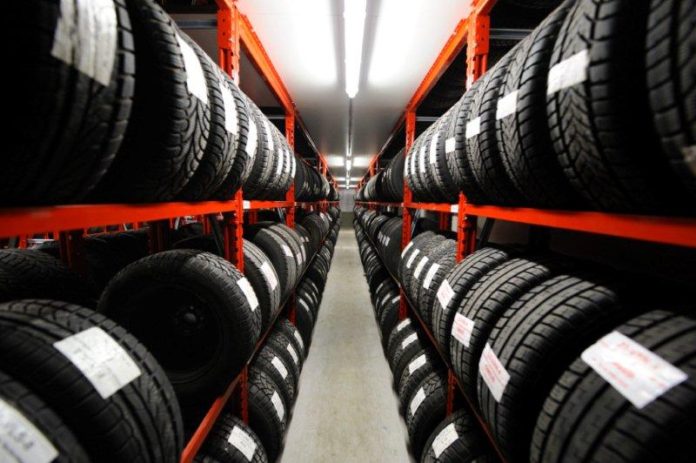Ballpark estimate: $75 to $350 for a quality tire for a car, SUV, or pick-up truck
Even the most reliable vehicle won’t get you very far if you don’t have safe tires installed. That’s why many people feel that the cost of tires an important investment in their well-being and safety. Tires come in a range of sizes, qualities, and price points. Exactly what you can expect to spend depends on a number of factors, including the type of vehicle you drive, the extent of the mileage you put on, and the seasonal road conditions you’ll need to navigate. Where you shop—as well as what kind of warranty you desire—will also impact the price of tires.
Factors to Consider
When shopping for tires, the best way to start is by knowing how you will use them in order to get the proper fit. Keep in mind that the tires need to be able to handle your vehicle’s weight and size, as well as the speed capacity. This means that you’ll need very different tires on an economy car than on a pick-up truck or a sports car. For instance, an economy car tire may be 15 to 16 inches, while a full-size sedan may need an 18-inch tire, and a truck could need a 20-inch tire.
If you’ll be driving long distances, in snow and icy conditions, or at high speeds (such as in a racing car), this will also impact your tire choice.
In addition, if you live in a climate with severe winter weather, you’ll need to decide if you want one tires that will work all year long or if you prefer to change your tires to ones for ice and snow in the winter. If you decide on a one-type-fits-all approach, just be sure to get the very best tires you can to ensure you will be safe on icy roads and other wintery conditions.
Finally, you need to check on the level of warranty that goes with the tires. Often they will be warranted to wear well for between 50,000 and 80,000 miles.
Other Details Affecting Cost
Other factors that can impact your cost include the brand you select (many people prefer to go with a name brand so they know what to expect and know you will be getting good quality rubber that will last), mounting the tires and balancing them, installing new valve stems, and disposing of your old tires. When getting a quote on new tires, in addition to asking the brand, be sure to find out if these other details are included and if not, find out how much they add to the cost so you will know exactly what to expect for the bottom line.
Numbers Matter
It’s always best to replace all four of your tires at once, whenever possible. But if you get a flat tire or your tires just don’t wear evenly, you may find yourself needing to replace just one or two at a time. This can be challenging because you want the tires to be of similar age and condition for the safest results. In this scenario, you may want to buy two new tires and have them put on the back of your car with the older ones in front. Rotating your tires like this can help you to get the best life out of them and the best performance. Just keep in mind that rotating your tires can also be at an extra charge.
It’s also worth noting that some retailers will offer a discount if you buy four new tires at the same time, so if you’ll need to replace all of the tires soon, it can be cost effective to do it at once.
Where to Shop
There are a number of different settings where you can buy new tires. For instance, you can get your tires from a local auto body shop or mechanic, from a retail shop a discount club such as Goodyear, Uniroyal, Bridgestone, Sears, BJs, Sam’s Club, or from an online discount seller like TireRack.com. If you shop online, just keep in mind that there may be additional costs for shipping, which can really add up. You will also need to have the tires mounted and balanced, which can also come at a charge if you have it done at a tire shop that didn’t sell you the tires.
Cost for Tires
What you will spend on tires can run a wide range. For an economy car, you can get away with one of the smaller and more affordable options, while a luxury car and SUV will require larger and higher quality tires. All-weather tires, such as those with heavier treads, and high performance tires for racing will be at the upper end of the scale. The tread life will also impact cost. A tire guaranteed for more mileage may also be more expensive, too, but it can be worth it to invest in a more expensive product up front if you plan to do a lot of driving.
To give you an idea of what you can expect to spend for different needs, consider the following ballparks. A good basic tire in the 15 to 16-inch size can cost between $75 and $150. A tire in this price range would be good on an economy sedan or hatch back. A premium tire that offers enhanced performance or an all-season tire that’s 18 inches in diameter will run you in the $100 to $250+ range. This is what you can expect to spend if you have a full-size sedan or luxury car. For a pick-up or SUV, you’ll need a heavier tire that’s about 20-inches. This can be in the $100 to $350 range, depending on the brand and the expected tread life. Finally, if you have a sports car or a car with special features, you may want to splurge on an enhanced sports car tire that costs much more. Some high-end tires can cost as much as $500 or even much, much more.
Extra costs: Disposing of your old tires can add up to another $10 each to the bill. Balancing tires can be about $10 each or more (this can sometimes be included in the cost of new tires). If you order tires online, the shipping if you purchase online can be up to $50 or even more.
Is It For Real?
You can find lots of sales and special price promos on tires in circulars, in the newspaper, and online. But if the price seems too good to be true, you may wonder if you can really trust the deal. The experts say that many times you can find a good price on tires, but you often get what you pay for. The lowest prices are usually for the smallest tires. In addition, a bargain tire will often be made from rubber that is cheaper quality, the warranty will likely be minimal and there may be lots of extra charges for things like mounting, balancing, and tire disposal. When you add all of these factors in, you may not be getting such a good bargain.
Another cost-saving option if your existing tire just has minor damage is to talk to the tire shop about whether it might be possible it to have it patched rather than replacing it.
Buyer Beware
On the hunt to save money, some consumers consider the option of buying slightly used tires. While this can save money in the short term, it can be costly overall in terms of your safety. In fact, Consumer Reports advises against going this route because you don’t know how the tires were used in the past and how reliable they will be, so it’s always better to spend the money on a new tire and make sure your car will perform up to speed.












































